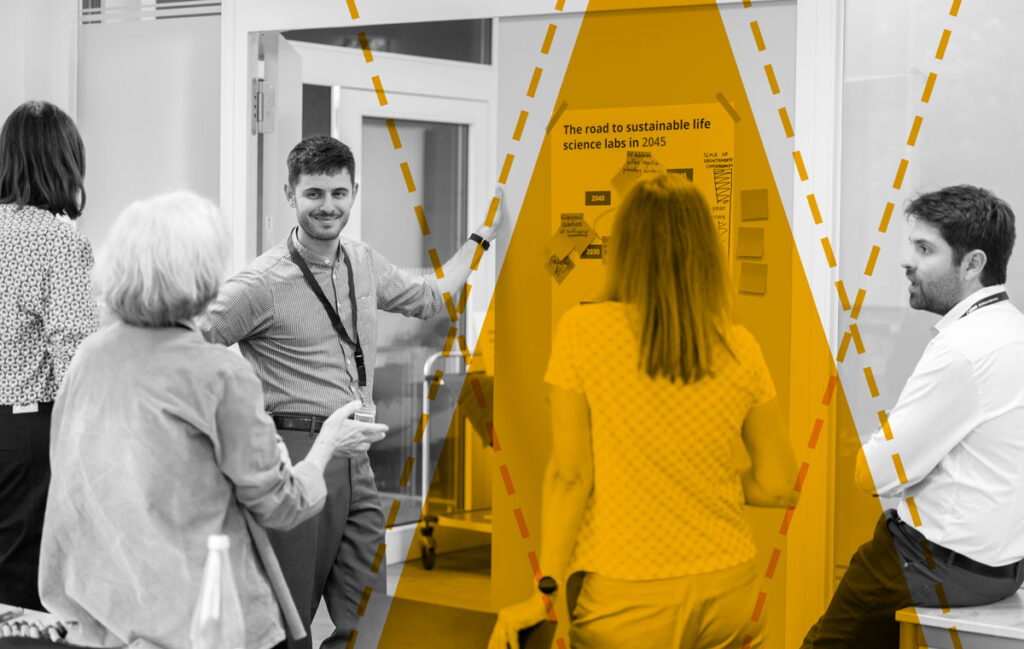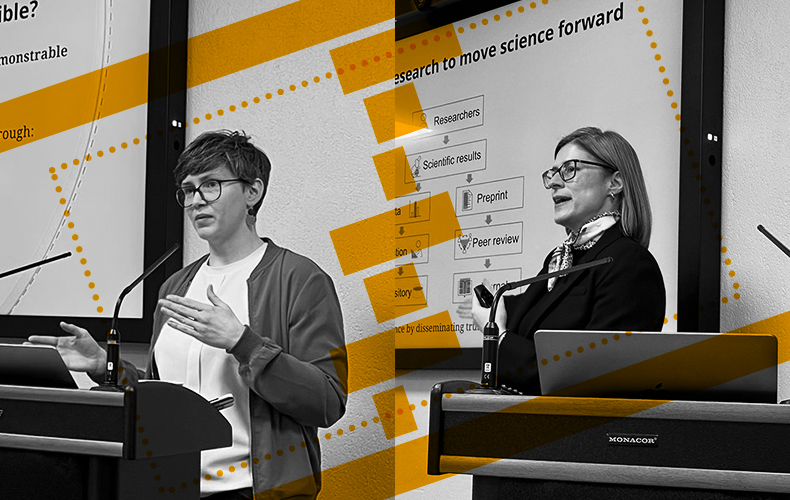17 May 2024 – On 14 and 15 May, EMBO convened a multi-stakeholder workshop “Funders’ role in promoting environmentally sustainable lab research” in Heidelberg to explore the critical role of funders in fostering environmentally sustainable research practices. This event gathered funders, research institute representatives, tool developers, and grassroots initiatives from across Europe, marking the first occasion these stakeholders collaborated on this pressing issue.
The workshop aimed to assess the progress funders have made in developing environmental strategies. This included identifying gaps and challenges, sharing knowledge and experiences, and exploring opportunities for collaborative efforts. Discussions highlighted the importance of funders setting ambitious sustainability goals and incorporating them into funding schemes. There was a consensus on the urgent need for a unified, cross-sectoral approach to sustainability in European research. According to Fiona Watt, Director of EMBO, the workshop happened at a pressing time: “The workshop represents a significant step towards aligning efforts across Europe to promote environmentally sustainable research. By fostering collaboration and developing a unified agenda, funders will strengthen their role in driving sustainable practices within the scientific community.”
We are walking when we should be sprinting1
Scientific research plays a crucial part in developing intervention strategies to ensure a sustainable future for planet and people. However, research practices, especially in laboratories, are unsustainable. There is a growing call from within the research community, particularly from younger researchers, to urgently address the environmental impact of their activities. Key resource-intensive areas of concern include energy and water consumption, single-use plastics, travel, procurement and buildings.
Funding agencies play a significant role in enabling researchers to conduct their work and are increasingly recognizing their responsibility towards sustainable research practices. They can influence what questions are tackled by research and to what extent research practices are sustainable through their strategic decisions. The UK research and innovation sector has only recently co-developed and just published a “Concordat for the Environmental Sustainability of Research and Innovation,”2 which commits its signatories, including some of the main national research funders and research organizations to integrate environmental sustainability into all aspects of their work.
To effectively address the complex issue of research sustainability, the community must foster exchange and interaction. Reflecting on the workshop, Susan Simon, Director of the UKRI Environmental Sustainability Program, remarked, “Whilst I am quite exhausted – it was ‘full on,’ I felt [the workshop] was very productive and made already a difference!” Similarly, grassroots actors believe the workshop is a good step in the right direction. “The energy in the room was amazing, people were talking from the heart, really doing their best to make a change for the community. I am taking back a lot of knowledge and ideas to push the transition further in the Netherlands,” said Florijn Dekkers from Green Labs Netherlands. “The workshop confirmed that environmental sustainability represents a critical priority for research funders, and the majority left with formal plans for the next year and a will to act even if those plans need to change soon after,” said Mathew Tata, Cancer Research UK. “It’s clear funders already have many options for incentivising and supporting sustainable lab research, and with new tools being developed there will be further more options for funders in the near future.”
The workshop was organized by Philipp Weber, Sustainability Officer at EMBO, Sandra Bendiscioli, Senior Policy Officer at EMBO, and Gerlind Wallon, Head of the EMBO Courses & Workshop Programme. Representatives from the following organizations attended: Austrian Science Fund (FWF), Cancer Research UK (CRUK), Dutch Research Council (NWO), European Commission (EC), EMBO, EMBL, European Research Council (ERC), Foundation for Polish Science (FNP), French National Research Agency (ANR), German Research Foundation (DFG), Green Algorithms Initiative, Green Labs Netherlands (GLN), Institute for Bioengineering of Catalonia (IBEC), King’s College London, Labos 1point5, Medical Research Council (MRC), National Committee of Scientific Research (CNRS), Science Foundation Ireland (SFI), Swiss Federal Institute of Technology in Lausanne (EPFL), University of Cambridge, UK Research & Innovation (UKRI), Wellcome.
A report of the workshop findings will be published.



